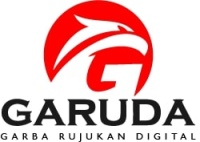OVERVIEW OF THE QUALITY OF NUTRITIONAL INTAKE DURING THE COVID-19 PANDEMIC IN THE ‘2019 STUDENTS’ OF THE FACULTY OF MEDICINE VIEWED FROM MEDICINE AND ISLAM
Keywords:
Quality of Nutritional Intake, COVID-19 PandemicAbstract
The situation of COVID-19 which continues to increase has aroused fears for health crisis. Various prevention of thespreading of this virus can be managed with the help of a strong immune system. One way tomaintain and improve our immune system is by paying attention to the quality of nutritional intake that we consumed, as well as diet. In the Qur'an, Muslims are required to eat halal andthoyyib food. In order to do these obligations, Muslims are encouraged to consume nutritious food so as to do their daily activities well, such as praying. This study is a descriptive study with a cross sectional study. The number of samples in this study is 145 respondents. The sample is determined with a purposive sampling technique and calculated with the Slovin formula, with anerror tolerance of 5% for the '2019 students' who are active in the Faculty of Medicine, YarsiUniversity. The data are analyzed univariately in order to describe the data set in the form offrequency and type of food. The results of this study show that during the COVID-19 pandemic, most of the '2019 students' of the Yarsi University Faculty of Medicine have irregular nutritionalintake patterns (as many as 116 students - 80%) and poor nutritional quality (with an average of 62 students - 77.25%). This is not in accordance with what is recommended in the Qur'an andhadith. Further research is still necessary to explore the quantity of the students' nutritional intake during the COVID-19 pandemic, the changes in their eating behavior during the COVID-19 pandemic, the family food consumption patterns, etc.
References
Agustina, Ranggauni, F., & Pristya, T. Y. R. (2021). Analisis Perbedaan Konsumsi Gizi Seimbang Sebelum dan pada Masa Covid-19 pada Remaja. Jurnal Ilmiah Kesehatan Masyarakat Volume 13 Edisi 1, 2021
Amaliyah, M., Soeyono, R. D., Nurlaela, L., & Kristiastuti, D. (2021). Pola Makan Remaja di Masa Pandemi COVID-19. Surabaya: Jurnal Tata Boga Vol. 10 No. 1 (2021) 129-137
ISSN: 2301-5012
Dewi, N., Memunah, N., & Putri, R. M. (2020). Gambaran Asupan Nutrisi Di Masa Pandemi Pada Mahasiswa. Jurnal Ilmiah Ilmu Kesehatan Vol.8, No.3, 2020, hal 369-382.
Kementerian Kesehatan RI (2020). Panduan Gizi Seimbang pada Masa Pandemi COVID “Lindungi Keluarga”. Jakarta: Kementerian Kesehatan Republik Indonesia. Diakses 21 Desember 2021 dari https://covid19.go.id/edukasi/ib u-dan-anak/panduan-gizi- seimbang-pada-masa-pandemi- covid-19.
Novianty, R., & Susant, R. (2020). Perubahan Kebiasaan Makan Mahasiswa Peminatan Gizi Selama Masa Pandemi COVID-19. Jurnal Kesehatan Masyarakat Mulawarman. Vol 2, No. 2 Desember 2020.
Rahayu Mustika. (2019). Pola Makan Menurut Hadist Nabi SAW (Suatu Kajian Tahlili). Makasar. Jurnal Diskursus Islam Volume 7 Nomor 2 Agustus 2019.
Siswanto, Budisetywati & Ernawati, F. (2013). Peran Beberapa Zat Gizi Mikro dalam Sisitem Imunitas. Gizi Indon 2013,36(1): 57-64.
Utami, A. M ., Kurniati, A. M., Ayu, D. R., Husin., & Liberty, I. A. (2021). Perilaku Makan Mahasiswa Pendidikan Dokter di Masa Pandemi COVID-19. Jurnal Kedokteran dan Kesehatan : Publikasi Ilmiah Fakultas Kedokteran Universitas Sriwijaya. Volume 8, No. 3/DOI: 10.32539/JKK.V813.13829.
WHO. (2021). Coronavirus Disease (COVID-19). Diakses 5 November dari https://www.who.int/health- topics/coronavirus#tab=tab_1.

 Rifdah Kayla Salsabila
Rifdah Kayla Salsabila
 YARSI University
YARSI University

 TEMPLATE
TEMPLATE


